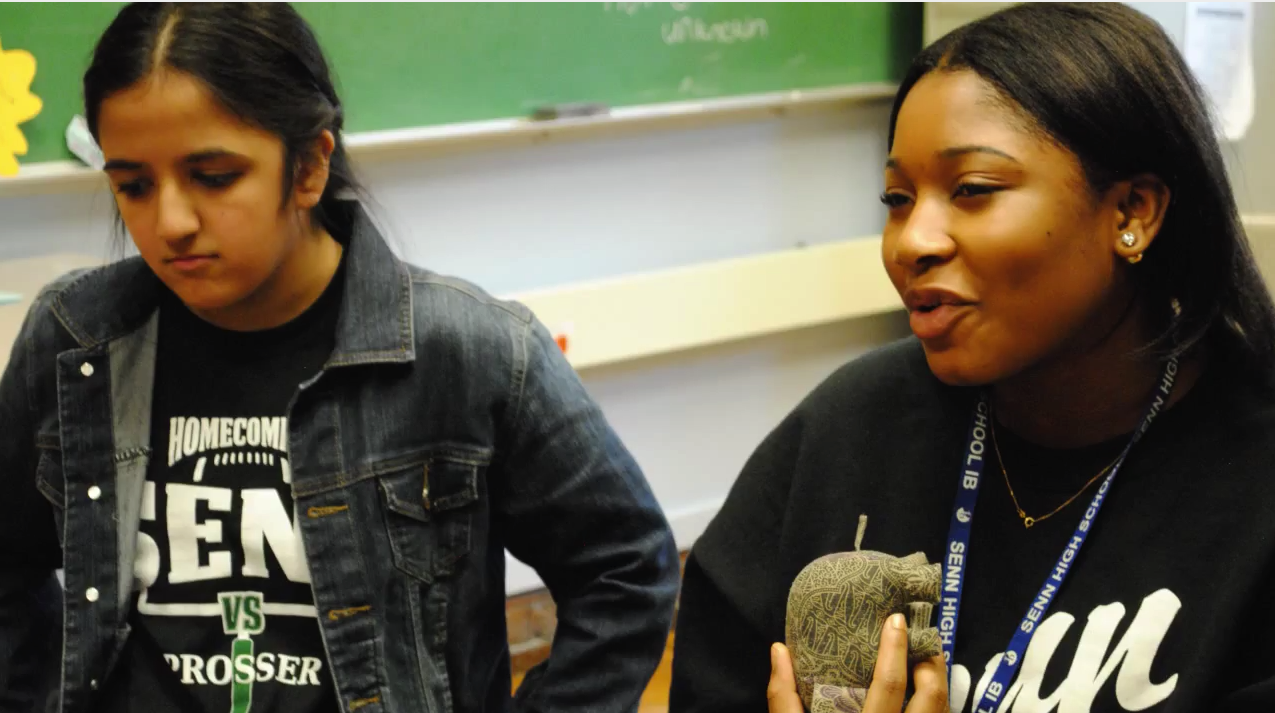Originally appeared in The Chicago Bureau:
 CHICAGO — At Senn High School, students are leading reform of the school’s discipline system through restorative justice.
CHICAGO — At Senn High School, students are leading reform of the school’s discipline system through restorative justice.
Senn’s Restorative Justice program aims to supplement a system of detentions and suspensions with an environment of open communication for students who run into trouble.
The program, which is coordinated by Alternatives Inc., a community-based, nonprofit organization, began at Senn in 1996. It has expanded to five other schools in the Chicago Public Schools system.
Alexis Jennings, Senn’s Restorative Justice specialist, said the program focuses on relationship building by pairing student peace ambassadors with students who have received disciplinary infractions.
“[Peace ambassadors] meet with a student who may have been referred to us by a teacher or by the discipline office for something like a compliance issue, like being out of uniform or disrupting class,” she said. “The peace ambassadors try to sit down with them, try to get the student to open their eyes on the impact of what happened.”
Jennings said via the use of talking circles and peace circles, students work together to develop creative solutions to avoid future disciplinary incidents as an alternative to traditional zero-tolerance policies. Those policies, which often use predetermined punishments, frequently have resulted in student suspensions or expulsions.
Studies have shown zero-tolerance policies are not effective in handling student discipline.
According to a 2008 study done by the American Psychological Association’s “Zero Tolerance Task Force,” zero-tolerance policies are an ineffective and potentially harmful to students.
“[Zero-tolerance policies] have not been shown to improve school climate or safety. … [nor have they] proven an effective means of improving student behavior,” the study concluded.
In fact, one study found zero-tolerance policies result in increased dropout rates.
Denisia Bryant, a peace ambassador at Senn, said the school’s program gives students someone to talk with one-to-one. With more than 1,000 students at Senn, Bryant said it is often difficult for students to find someone to talk.
“It keeps the drama low,” she said. “When there’s conflict between two or more students, they talk it out. We can hear all sides of the story.”
***
This story was produced by The Chicago Bureau.


























